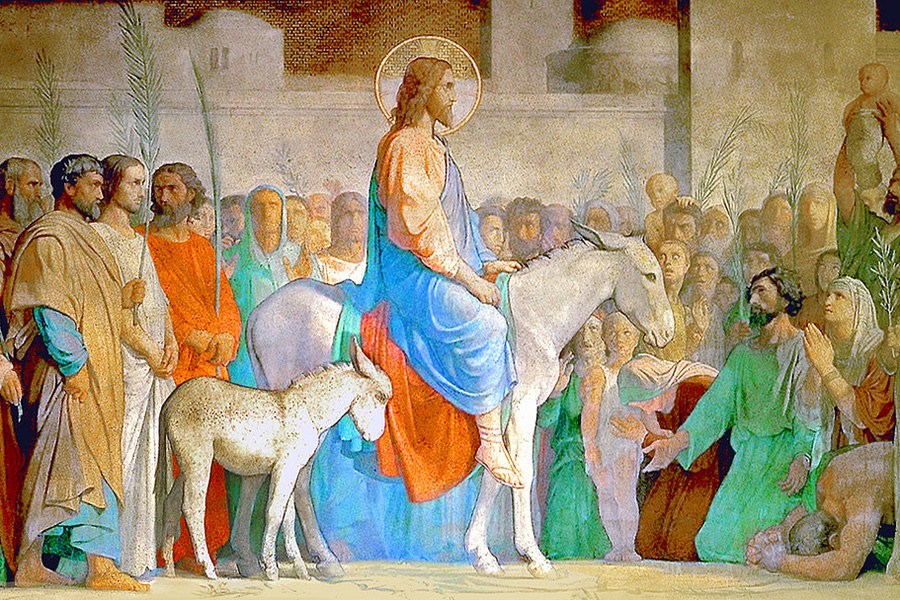
Preserving Orthodoxy and Trut
by Fr. Tony Okolo C.S.Sp., V.F. | 10/12/2025 | Weekly ReflectionBeloved Parishioners,
I continue my reflection in this forum on some doctrines which I started last week. Today I reflect on heresies and the church’s response. Every age has its peculiar fake news, counterfeits, and scams. Today, we deal with online fraud, pyramid, or ponzi schemes, and misleading headlines that spread faster than the truth.
In the early Church, it was no different — except the “fake news” was about Jesus Himself. Just as we now fact-check before we believe, the Church had to “truth-check” ideas that twisted the Gospel. These false teachings, called heresies, threatened to confuse the faithful. Yet in God’s providence, they also led the Church to proclaim the Creed, defend the sacraments, and even settle which books belong in the Bible.
When you open the Catechism of the Catholic Church (CCC 2089), you find a strong but clear statement: “Heresy is the obstinate post-baptismal denial of some truth which must be believed with divine and Catholic faith, or it is likewise an obstinate doubt concerning the same.” In simple terms, heresy begins when someone baptized into Christ decides to reject part of the faith handed down from the apostles. It is like a musician in an orchestra deliberately playing the wrong notes, not out of mistake, but out of pride — and refusing to play in harmony with the rest.
In the early centuries, Christians wrestled with how best to speak about Jesus. Who is He? How is He both God and man? Gnosticism in the 2nd century whispered about a “secret knowledge” that only a few chosen souls could possess, but the Church replied with St. Irenaeus’ powerful words: “The glory of God is man fully alive.” Christ revealed Himself for all, not just for a spiritual elite. Arianism in the 4th century shook the empire when Arius claimed Jesus was not truly God but a kind of exalted creature. At the Council of Nicaea (325), the bishops proclaimed what we still profess in the Creed every Sunday: “God from God, Light from Light, true God from true God.” Nestorianism in the 5th century tried to divide Jesus into two persons, denying Mary the title Theotokos, Mother of God, but the Church at Ephesus (431) defended Mary and the truth of the Incarnation: one divine Person, truly God and truly man. Pelagianism in the same century sounded appealing: “You can save yourself by your own strength, no need for grace.” But St. Augustine reminded the Church — and us — that everything is a gift. As the Catechism teaches (CCC 1996), “Our justification comes from the grace of God.” These were not small debates; they were battles for the very heart of the Gospel.
Sometimes people today wonder: “Why worry about heresies from long ago?” The answer is simple: because false ideas about God never really go away. They resurface, often dressed in new language. The temptation of Gnosticism reappears in modern “New Age” movements or secret cults promising hidden wisdom. The spirit of Arianism lives on when Jesus is reduced to just a good teacher, stripped of His divinity. Pelagianism lurks whenever we act as if we can “go it alone,” forgetting our need for grace and prayer. As Pope Benedict XVI once warned, “A dictatorship of relativism is being formed that does not recognize anything as definitive and whose ultimate goal consists solely of one’s own ego and desires” (Homily, April 18, 2005). In other words, the same old heresies just put on modern clothing. Pope Francis echoes this when he writes in Evangelii gaudium (§94): “The great danger in today’s world, pervaded as it is by consumerism, is the desolation and anguish born of a complacent yet covetous heart… Many fall prey to it, seeking only their own interests.” Like Pelagius of old, our age still tempts us to live as if God’s grace is unnecessary.
Here’s a fascinating twist: heresies even pushed the Church to close the canon of Scripture. In the 2nd century, a teacher named Marcion rejected the Old Testament and kept only parts of the New Testament he liked. His “cut-and-paste” Bible forced the Church to ask: “Wait a minute — what books are truly inspired?” Through prayer, tradition, and guidance of the Holy Spirit, local councils such as Hippo (393) and Carthage (397, 419) affirmed the canon of Scripture that Catholics still use today. In defending the faith against heresy, the Church safeguarded the treasure of the Bible itself — a fixed canon of books that cannot be added to or subtracted from. So, in a way, heresies (though harmful) had the unexpected effect of forcing the Church to clarify, define, and preserve the truth more clearly for future generations.
Heresies are not just dusty theological mistakes of history. They are reminders that the truth of our faith is a treasure we must guard with humility and joy. When we pray the Creed at Mass, we are not just reciting old words. We are standing with the apostles, the martyrs, the great councils, and popes of the Church, saying: “This is the faith of the Church. This is our faith. We are proud to profess it in Christ Jesus our Lord.” So, the next time you hear the Creed, let it be more than words. Let it be your shield against doubt, your compass in confusion, and your joyful “yes” to the God who revealed Himself fully in Jesus Christ. Because in the end, heresies fade, but truth remains. Or as Jesus Himself promised: “Heaven and earth will pass away, but my words will not pass away” (Mt 24:35).
BACK TO LIST